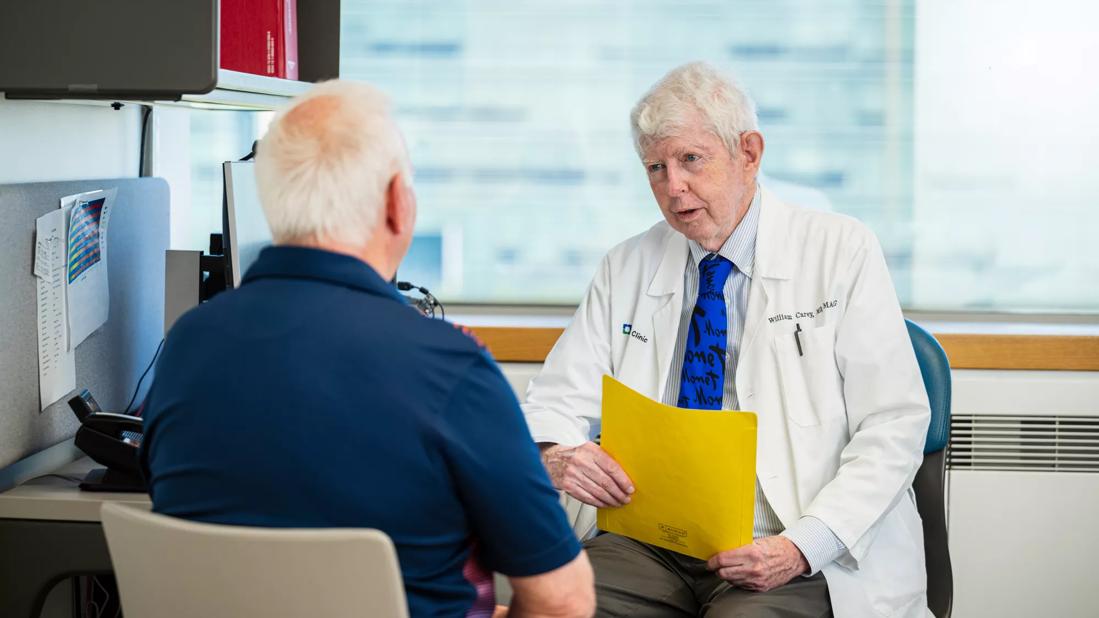Findings show no increased risk in long-term outcomes

A new study by Cleveland Clinic researchers confirms that hearts from hepatitis C-positive donors are safe to use for transplants long-term.
Advertisement
Cleveland Clinic is a non-profit academic medical center. Advertising on our site helps support our mission. We do not endorse non-Cleveland Clinic products or services. Policy
The study, which followed patients over a four-year period, found no differences in mortality between patients who received healthy and infected hearts. Cardiac events and other adverse outcomes were also similar.
“This study compared two groups of heart transplant patients — those who received hearts from hepatitis C-infected donors and those who received hearts from uninfected donors,” explains Cleveland Clinic internal medicine resident Ritika Mazumder, DO, lead author on the study. “We tracked the health of the recipients over four years, focusing on mortality rates, heart function and complications such as organ rejection or heart disease. Our goal was to understand the risks and outcomes of receiving a heart from a donor who was infected with hepatitis C.”
“It does seem counterintuitive to infect a person purposely,” acknowledges Cleveland Clinic hepatologist William Carey, MD, senior author of the study. “But we wanted to reassure everyone that using these hearts is both effective and safe.”
Around 95% of patients who receive a heart from an infected donor do develop hepatitis C, but the infection is cleared with treatment, Dr. Carey explains.
“A bigger concern has been organ rejection; older immunotherapy drugs used to treat hepatitis C were known to increase the risk of early heart rejection and adverse events, making potential donors unsuitable for transplant,” he says. “Newer drugs are not only more effective at eradicating the virus, but they also act by attacking the virus directly, which makes them compatible with immunosuppression and reduces the risk of rejection.”
Advertisement
The new, retrospective study builds on previous research that found promising short-term outcomes in transplants involving hearts from donors with hepatitis C.
Researchers tracked outcomes for 256 heart transplants performed between 2018 and 2022. Of these cases, 23 involved hearts from donors who were positive for hepatitis C.
The study found no significant difference in mortality over a four-year follow-up period. The two groups also had comparable rates of rejection and adverse cardiac events.
“Overall, our study shows that using organs from donors with hepatitis C for heart transplant is just as safe as using ones from hepatitis C-negative patients, with similar risks of rejection and cardiac complications after transplant,” notes Dr. Mazumder. “This is a big step forward because by expanding the potential donor pool, we can offer more life-saving opportunities for patients in need.”
Dr. Carey says he is pleased although not surprised by the findings. He notes that organs from hepatitis C-positive patients have been used successfully for kidney and other transplants.
However, even though guidelines now encourage the use of organs from infected donors, some providers remain concerned about organ rejection with heart transplants, he notes.
“As a liver specialist, I’ve been confident for years that this is a good thing to do,” he says. “I hope that with this study we’ve allayed any fears that the cardiology world might have about this approach.”
Dr. Carey notes that around 3,500 people are currently in need of heart transplants, with as many as 1.5% of waiting patients dying each month.
Advertisement
The research group notes that deaths caused by the opioid epidemic have led to a surge in transplantable organs; however, many of these donors are infected with hepatitis C.
Today around 8% of hearts transplanted at Cleveland Clinic come from positive donors, Carey noted.
“I think this is a substantial improvement in our ability to treat people with advanced heart disease,” he said. “This is a good thing, and there’s no reason to be hesitant at all.”
Dr. Carey notes that as a follow-up, the group will continue to track patients' long-term outcomes.
He also says providers should move toward treating infected heart recipients preventatively, rather than waiting for them to test positive for the virus. This proactive approach has been used effectively with other organ transplants.
“It seems this is where we should be heading,” he says. “These kinds of findings encourage us to stay active in and work towards progressing this field to keep improving patient outcomes.”
The study, “Long-term Comprehensive Outcomes for Hepatitis C Viremic (HCV) Heart Transplantation 1 to Aviremic Recipients,” was presented at this year’s American Association for the Study of Liver Diseases Conference.
Advertisement
Advertisement

Caregiver collaboration and patient education remain critical

Multimodal evaluations reveal more anatomic details to inform treatment

Insights on ex vivo lung perfusion, dual-organ transplant, cardiac comorbidities and more

Milestone minimally invasive surgeries reduce pain and recovery time

Veteran nurse blends compassion, cutting-edge transplant training and military tradition to elevate patient care

Enhanced visualization and dexterity enable safer, more precise procedures and lead to better patient outcomes

A closer look at the impact on procedures and patient outcomes

Insights on bringing Cleveland Clinic even closer to becoming the best transplant enterprise in the world